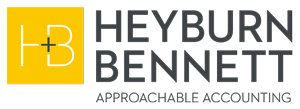This will depend on how soon you file your Tax Return. If you are able to provide your accounting details as soon as possible after the tax year-end (5 April), we will endeavour to prepare your accounts and Tax Return at the earliest opportunity. Once your Tax Return is filed, it can then take typically between 1 to 4 weeks for HMRC to process the refund.

FAQs
I am self-employed in the construction industry. How soon will I receive my tax refund?
What is “Making Tax Digital” and will it affect me?
Making Tax Digital (MTD) is part of the government’s plan to make it easier for businesses to stay on top of their day-to-day accounts.
From April 2019, businesses above the VAT threshold (currently £85,000) will be required to set up a digital tax account and file quarterly returns online.
From April 2020, the current HMRC target is for all limited companies and sole traders/partnerships with income over £10,000 to be brought within the regime.
The goalposts are ever-changing in this area, so keep in touch with us if you are concerned or alternatively search for the latest news HERE
I am starting a business. Should I set up as a sole trader or a limited company?
This depends on a few factors. You may pay slightly less tax and National Insurance by setting up as a limited company, but the inception of the dividend tax from 6 April 2016 has narrowed the gap. Also, in some cases, it may be more commercially viable to operate as a sole trader (or partnership). Please contact us if you would like to discuss this in greater detail.
Do I need to register for VAT?
If your annual turnover exceeds £85,000 then you will be required to register for VAT and charge VAT to your customers. In some cases, it may be beneficial to register for VAT even if your turnover is below £85,ooo. For example, if your customers can themselves recover the VAT (normally a VAT registered business) then it will be tax neutral to you both and you can then recover any VAT you have incurred on your own expenses.
Please contact us if you would like to discuss this in greater detail.
I hear a lot said about “tax avoidance” and “tax evasion”. What is the difference?
Tax avoidance is legal, whereas tax evasion is illegal. However, tax avoidance schemes are not encouraged as in the view of HMRC such schemes are set up aggressively to circumvent tax legislation. HMRC would argue that everyone should pay their fair share of taxes, and manipulating the rules is against the spirit of fair play.
In such cases, these tax avoidance schemes are often challenged by HMRC through the courts and subsequently the loopholes are closed.
HMRC won’t come after me because I am too small. Is that correct?
No. Everyone has an equal chance of being the subject of a random HMRC enquiry.
What is IR35 and does it affect me?
IR35 is tax legislation that is designed to combat tax avoidance by workers supplying their services to clients via an intermediary, such as a limited company, but who would be an employee if the intermediary was not used.
Such workers are called ‘disguised employees’ by HMRC. If within IR35, they have to pay income tax and National Insurance Contributions (NICs) as if they were employed. The financial impact of IR35 is significant. It can reduce the worker’s net income by up to 25%, costing the typical limited company contractor thousands of pounds in additional income tax and NICs.
Despite having been in force since 1999, IR35 is heavily criticised by tax experts and the business community as being poorly conceived, badly implemented by HMRC and causing unnecessary costs and hardships for genuine small businesses.
In many cases it is possible to build in clauses in the contract so that IR35 is refuted and there are many organisations that support the self-employed in their challenges against HMRC.
Please contact us if you would like to discuss this in greater detail.
What is the amount I can earn before I pay tax?
The “personal allowance”, being the amount of income you can receive in a tax year before you pay tax is currently £11,850 for 2018/19, but tends to increase slightly each year.
There are some cases where you are not entitled to a personal allowance, such as when your income exceeds £100,000; the personal allowance is then reduced by £1 for every £2 over £100,000 until it is totally extinguished.
In addition, if you are employed or self-employed, the threshold before you pay national insurance is currently lower than the personal allowance. You will therefore need to factor this in before making any calculations.
A list of the current allowances and tax rates is found here:
INCOME TAX RATE
NATIONAL INSURANCE
What is child benefit clawback and if I am affected does it mean I need to complete a Tax Return?
The High Income Child Benefit Charge (HICBC) is a tax charge paid by higher earners which claws back up to 100% of any child benefit received by a higher earner or their partner.
The HICBC is only payable when the income of the child benefit claimant or their partner exceeds £50,000 p.a. The charge applies to households from 7 January 2013. The charge is collected under self -assessment so it will be necessary to complete a Tax Return.
Further information can be found here:
CHILD BENEFIT TAX CHARE
Please contact us if you would like to discuss this in greater detail.
Do I need to complete a Tax Return?
HMRC have a checklist whereby you can work through and see if you are required to complete a Tax Return. However, it can be argued that if you are a director of a company, but receive no income from the company, then you should not need to complete a Tax Return, whereas the HMRC checklist indicates you should. In such cases a simple telephone call to HMRC should suffice.
CHECK IF YOU NEED A TAX RETURN
Please contact us if you would like to discuss this in greater detail.
Do I need to be in my employer’s pension scheme?
Under law an employer must now provide a workplace pension for its employees. There are rules on enrolment depending on your age and level of salary. Detailed information can be found here:
WORKPLACE PENSIONS
INDIVIDUAL PENSIONS
I need to apply for a mortgage and my financial adviser informs me the lender will need certain information from my accountant. Can you explain the procedure and how long it will take?
Lenders will normally require an “Accountants Certificate” which typically provides a statement of income for the applicant for the past 2-3 years. However, each lender has their own style of certificate; there is no uniformity.
As accountants we would encourage you to being us in to the process as early as possible. We have found in the past the request for our input is delayed, which in turn protracts the mortgage application often to the detriment of the borrower.
The lender will also often request verification of income from HMRC. This was known as an “SA302”, but since 4th September 2017, HMRC no longer issue these.
In place of the SA302, lenders should now accept a “Tax Year Overview” which we can print as your agent from the HMRC website together with a copy of the “Tax Calculation Summary” provided by our Tax Return software.
Please contact us if you would like to discuss this in greater detail.
What is the best accounting software for my business?
There are many excellent accounting software providers, so please take time to research them and decide what is best for you.
We are partnered with “Xero” and consider them to be the most appropriate accounting software providers in many cases.
Please contact us if you are interested in looking at Xero in greater detail.

